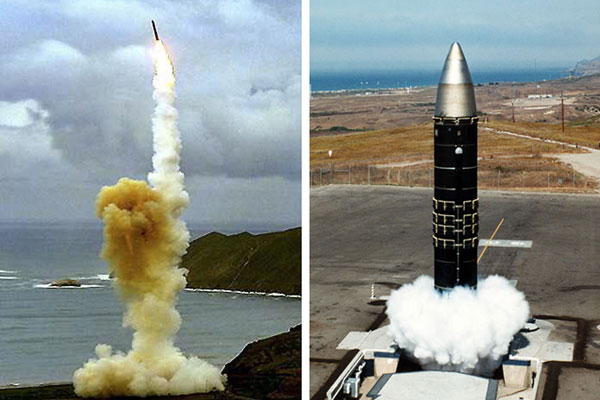President Obama is considering further unilateral cuts in the nuclear arsenal, but his disarmament policies will do nothing to make the world a safer place.
In a newly published paper, “Slouching Toward Zero,” Dr. Robert Butterworth, president of Aries Analytics, charges that the modernization of U.S. nuclear forces, while remaining essential, could benefit from a more incremental approach, given the uncertainties of the current strategic global environment.
The Daily Signal depends on the support of readers like you. Donate now
Dr. Butterworth’s thesis is that the Obama Administration’s current approach to maintaining the nation’s strategic nuclear delivery forces does not address a world of emerging threats and changing security issues. Any large-scale reductions to U.S. nuclear forces are counterintuitive as long as nuclear proliferation trends around the globe continue.
It is imperative for the United States to maintain a strong nuclear arsenal to protect itself and its allies. It is also imperative for U.S. nuclear weapons to remain effective, which requires a modernization program of the nuclear arsenal. Under the Obama Administration’s policies, replacement systems will not enter the arsenal until 2030. By then, the weapons in each leg of the nuclear triad will be so old that their aging will place the arsenal’s reliability in jeopardy. And since the nuclear arsenal provides what is needed for the U.S. deterrent, these policies undermine its credibility.
“Slouching Toward Zero” posits that, over time, new and different threats could emerge that may change Russia’s strategic views, which could affect their force posture. Russia, however, still sees U.S. unilateral actions and foreign policy as its primary security challenge. Russia will continue to build up its long-range nuclear forces and keep its advantage in short-range nuclear forces, because its nuclear arsenal guarantees its major power status in the world.
While it makes sense that any modernization program has to include flexibility to rebalance the force as needed, the U.S. still needs to maintain its nuclear arsenal at a level to deter its adversaries and those of its allies, who depend on U.S. protection.
Another assertion in the paper is that in the future, the U.S. needs to deal militarily with lesser nuclear powers without using nuclear weapons, even if the other side uses them. Yet ever since the Cold War, U.S. nuclear weapons have been critical to assuring more than 30 allies and friends through U.S. nuclear security guarantees.
Depending on non-nuclear forces would not increase confidence in American extended deterrence by allies who look to the U.S. “nuclear umbrella” for protection. That umbrella is essential to the nonproliferation regime to discourage others from developing their own nuclear arsenals.
President Obama is seeking further nuclear reductions and is now abandoning the modernization necessary for the effectiveness of U.S. strategic forces. While Russia and China are building up their nuclear capabilities, the U.S. is the only nuclear power without a substantial modernization program. In this multi-polar proliferated environment, the U.S. needs to maintain and modernize its nuclear weapons arsenal.
Jordan Harms is currently a member of the Young Leaders Program at The Heritage Foundation. For more information on interning at Heritage, please click here.





























